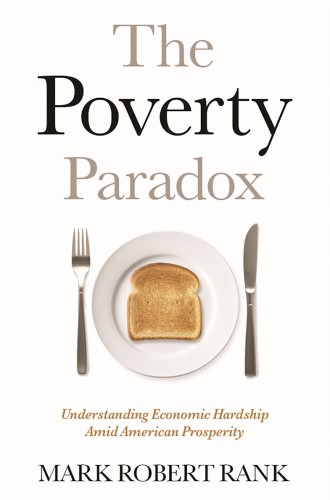Impoverished by design
Sociologist Mark Rank shows how the United States systematically produces economic vulnerability.
I heard it for the first time while running on a treadmill, and I rewound and replayed it until I had it memorized. “I’ve listened to many a Marxist accuse the churches of having a vested interest in unjust structures which produce victims to whom good Christians can then pour out their hearts in charity,” thundered William Sloane Coffin from the pulpit of Riverside Church. “I’ve listened and I’ve shuddered, because so often in history it’s been so true.” Later, when I was a divinity school student, Coffin spoke to me every day as I listened to his sermons while exercising in the afternoons. I appreciated his willingness to preach openly, honestly, and astutely about money and class politics from a relatively radical Christian perspective. More than anyone else, he helped me make sense of my time in divinity school and in the Protestant church.
Coffin’s words returned to me as I read The Poverty Paradox. Sociologist Mark Robert Rank has researched, analyzed, and written about poverty in the United States for decades, and his expertise is on clear display in this book, which offers a cogent and comprehensive take on an enduring paradox. “Simply put,” he writes, “the argument is that poverty ultimately results from failures at the economic and political levels.” His conclusion might be one that many have already perceived, but his explanation of poverty in the United States provides a missing and especially crucial element in sociological studies.
Rank’s primary contribution comes in the book’s second major section, where he develops a “structural vulnerability explanation of poverty,” a perspective that he first began cultivating three decades ago. Traditional explanations of poverty in the US focus on individual choice and behavior, perpetuating the noxious, pervasive, and convenient myth that people without resources are feckless, inept, and irresponsible, having only themselves and their bad choices to blame. Rank’s approach, in contrast, demonstrates that modern America guarantees poverty. America denies many of its citizens the human capital (education and experience, for example) needed to be competitive in the labor market and then effectively punishes them for not possessing it.





